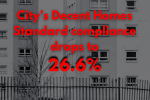A working group of 10 Labour Council members presented their results in an internal report to the Labour leadership. They occasionally had to compare contrasting reports of what was happening "on the ground" with what the crews had reported. According to the results of the councillor-led investigation, people in Birmingham are being let down by the city's waste collection service, with "unreliable" crews frequently missing entire streets. Residents are "losing faith" in the service due to the inability to "fully register complaints and missed collections, improper recycling, and workplace discipline concerns," according to a report.
The study, which was conducted over the summer and is dated October 24, identified a number of issues with the programme and suggests that it be overhauled and given additional cash. A "root source of the long-standing difficulties," according to their analysis, was "a legacy of bad labour relations and workplace discipline." "A long catalogue of difficulties have left us with an eight-year legacy of inconsistent service that has significantly harmed Labour's image for providing an efficient basic rubbish service," the study, which was meant for internal use but shared anonymously stated.
Ian Ward, the council's Labour leader, requested a review of the service after constituents often brought up bin-related complaints during the local election campaign in May. The working group's report, Better Basic Services, identifies the following issues:
- Lack of backup and certified HGV drivers results in the cancellation of entire rounds of service occasionally.
- Over-reliance on personnel from temporary agencies who are inexperienced with the plan causes streets and areas to be missed
- Staff who arrive at the depots later than expected prevent rounds from being finished.
- Usage of out-of-date paper lists of aided collection addresses that aren't even organised according to route, making it easy to overlook some.
The Council members claim that they discovered that some rounds are "dropped" considerably more frequently than others and that streets that are missed "are not random." The group is led by Cllr. Rob Pocock. They claim: "There is a tendency for some streets to consistently be overlooked while others nearby are typically fine. This is likely due to some round crews being unreliable, being disproportionately affected by absenteeism, labour disputes, etc., which results in those specific rounds being missed more frequently than others."
Additionally, they discovered that employees' reports to the depot concerning missing streets and missed bins are "not always trustworthy," which prevents supervisors from taking appropriate action. Councillors who compared what was occurring "on the ground" with what the workers reported were able to find evidence of this.
The response councillors can give to citizens who are complaining about the service may not be correct since they are not adequately notified when problems develop. As a result, "we appear to not know what's going on." "Residents are losing trust in filing complaints since nothing improves," they continued.
The report by the Labour councillors also asserts that no outside challenge from organisations with senior waste management expertise has been made and that no experts have been hired to push for high-level change. Additionally, they claim that given that the issue of waste is "of such central importance to our political reputation," the Cabinet leadership should assume "a fully shared collective responsibility" for bins.
On recycling, things are worse. Residents may observe this, and it affects their faith in the recycling programme since they see it just getting jumbled up in the end, the research said. "Catch-up personnel" who pick up missed collections are observed throwing the recycling and landfill rubbish together. There isn't a clear improvement strategy in place.

